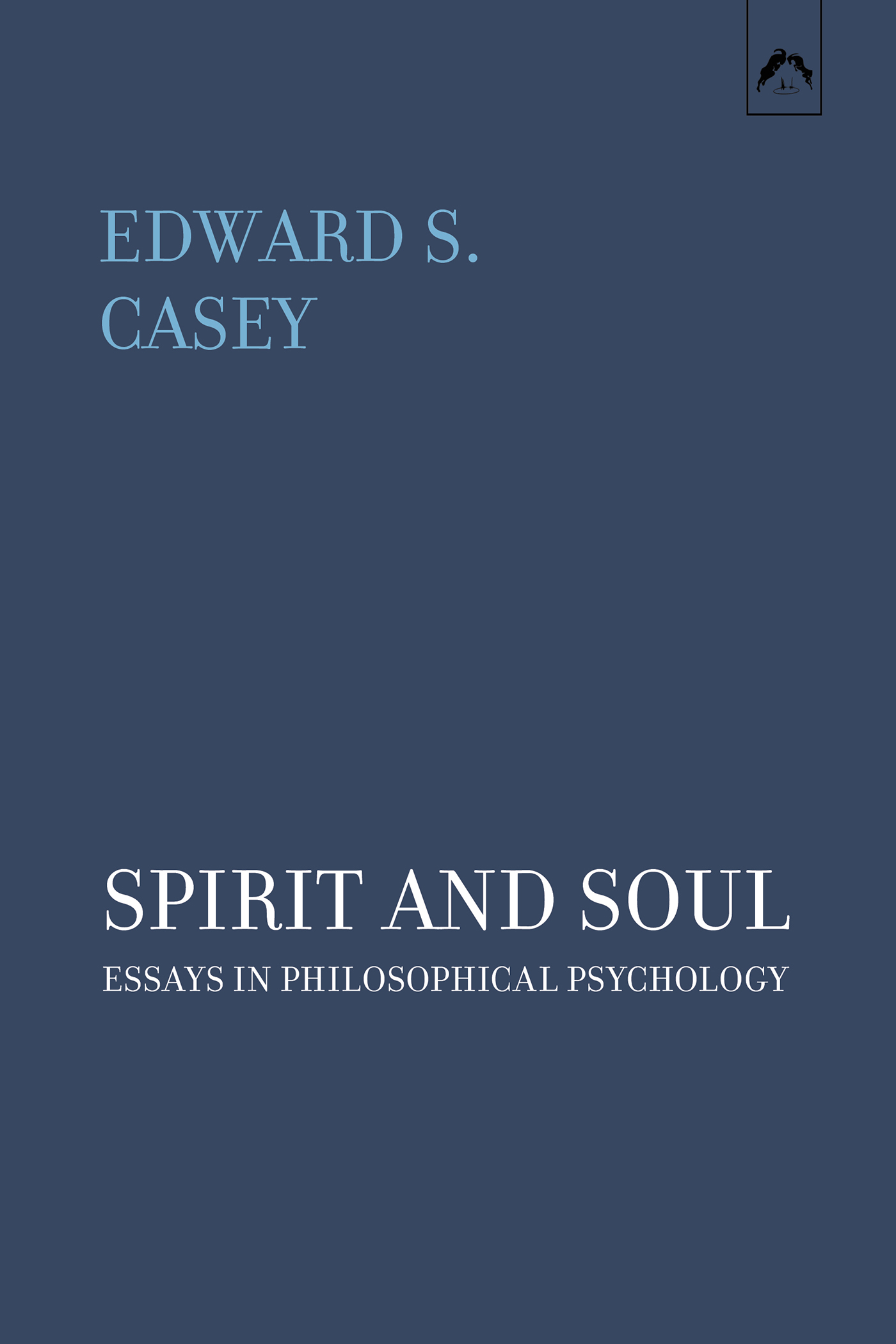EDWARD S. CASEY
Edward S. Casey, Distinguished Professor Emeritus of Philosophy at Stony Brook University, was the president of the American Philosophical Association (Eastern Division) from 2009–10, and chairman of the Philosophy Department at Stony Brook University for a decade. He works in aesthetics, philosophy of space and time, ethics, perception, and psychoanalytic theory. He obtained his doctorate at Northwestern University in 1967 and has taught at Yale University, the University of California at Santa Barbara, The New School for Social Research, Emory University, and several other institutions. He is the author of The Fate of Place: A Philosophical History; Getting Back Into Place: Toward a Renewed Understanding of the Place-World; Remembering: A Phenomenological Study; and its sequel, Imagining: A Phenomenological Study.
SPIRIT AND SOUL
Essays in Philosophical Psychology Third, revised edition, 2024 Paperback original, 540 pages, $30
ISBN: 978-0-88214-176-3 Kindle/Apple Books, $9.99
ISBN: 978-0-88214-177-0
Essays in Philosophical Psychology Third, revised edition, 2024 Paperback original, 540 pages, $30
ISBN: 978-0-88214-176-3 Kindle/Apple Books, $9.99
ISBN: 978-0-88214-177-0
❝
For Casey, philosophy itself would not be possible without the imagination. Like emotion, imagination is “a spontaneously unifying factor in human experience, first linking body with soul … and then connecting soul with spirit.” For Casey, like for Hegel and Giegerich, this linking is not an external process that starts with two different objective entities: body and soul, “but of an indefinite plurality of modes of existing between which imagination moves in its Mercurial manner.” If, for Casey, imagination is an upward linking already in process, a binding adhesive that is active at a subtle level, it is also not the only process at work as a synthesizing force. Imagination's upward movement is matched by memory's downward movement from spirit to soul.
—STANTON MARLAN
—STANTON MARLAN

